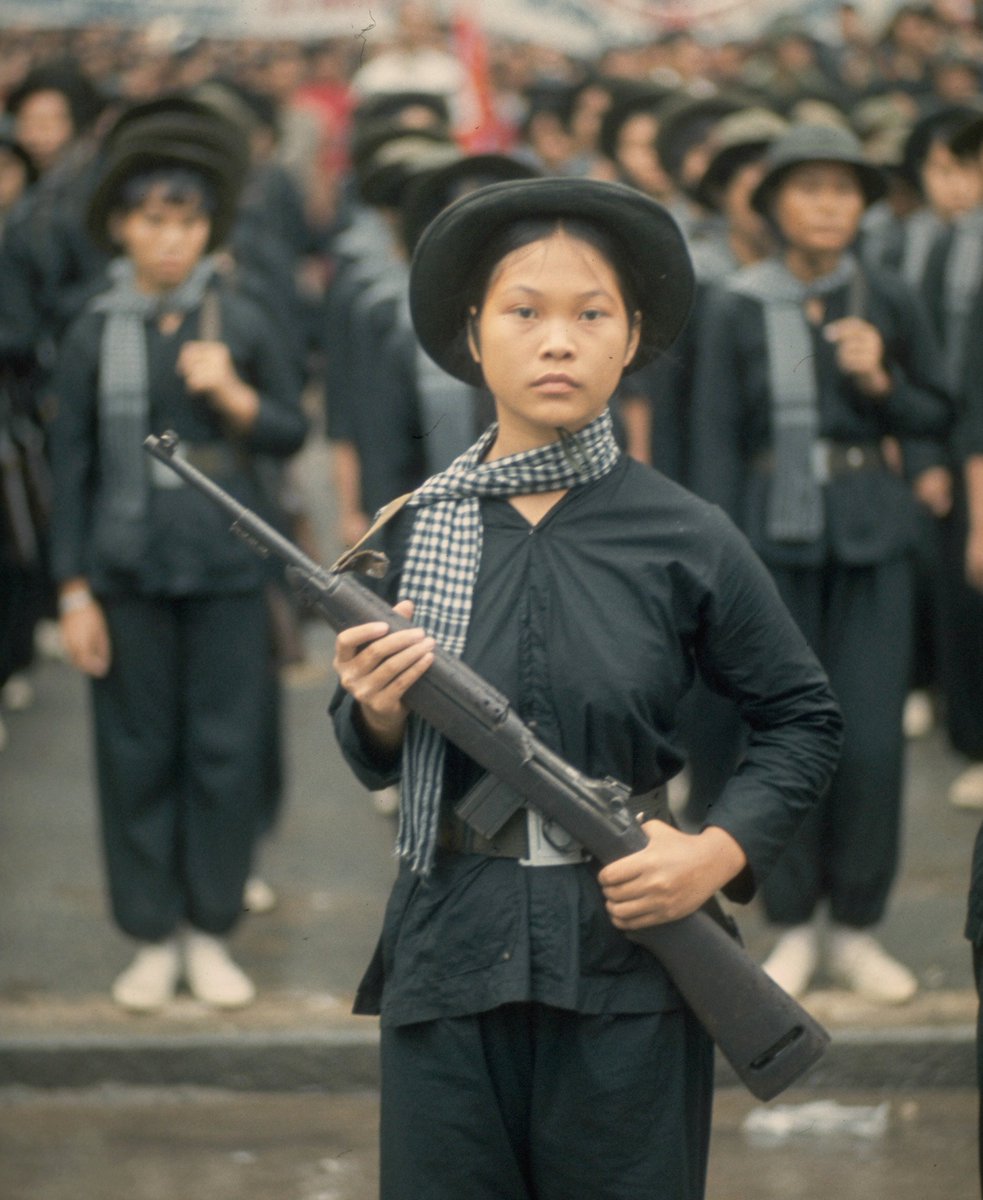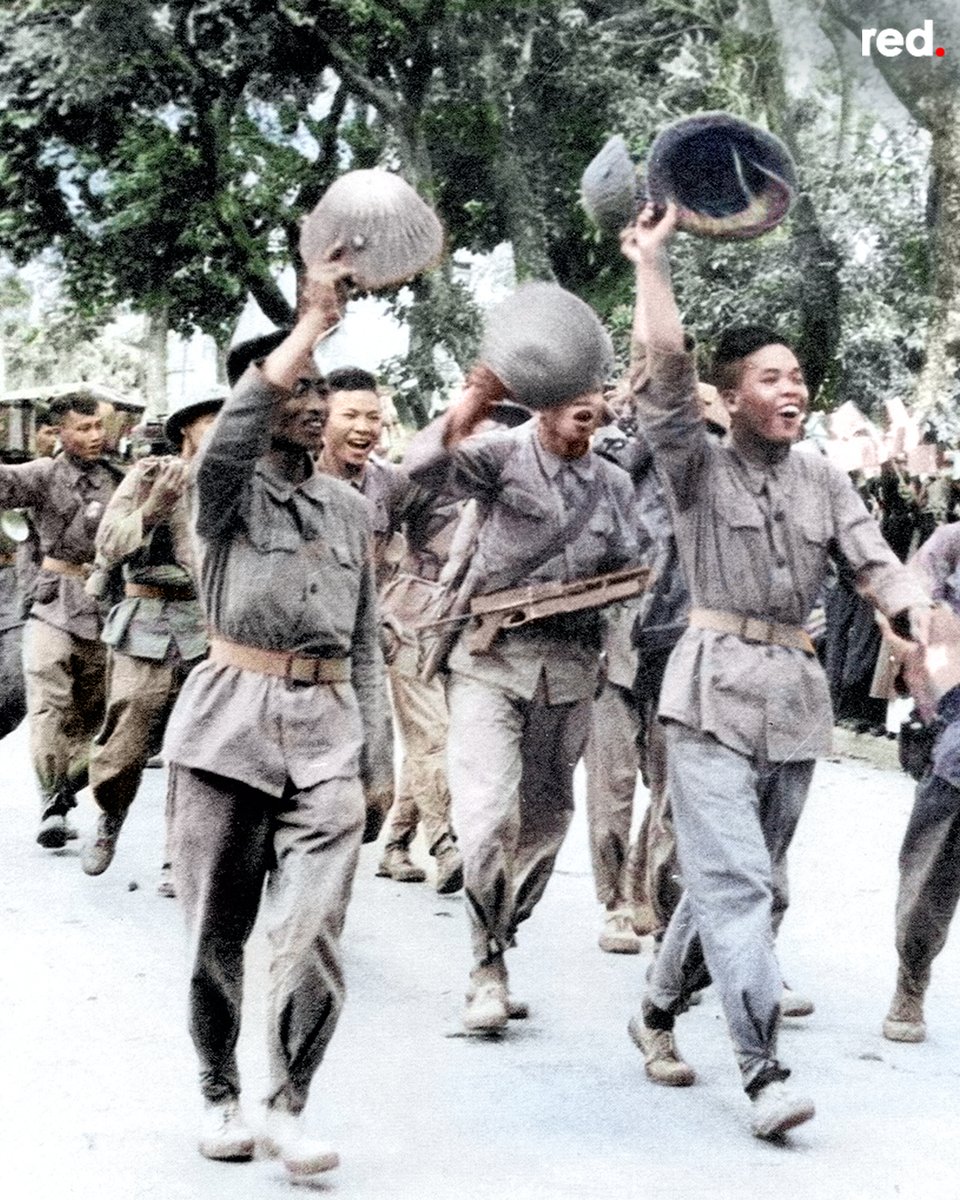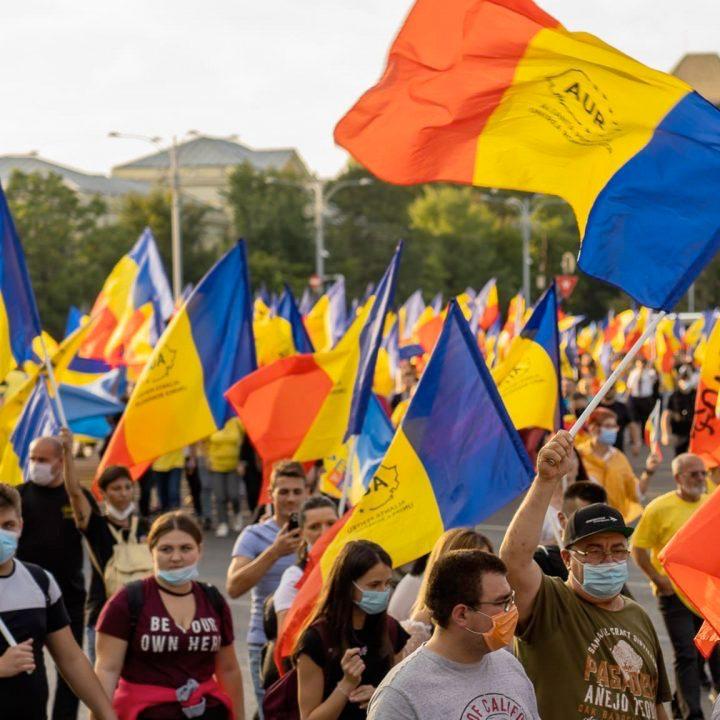Vietnam is celebrating 50 years of reunification! 🇻🇳
After a decades-long liberation struggle in Vietnam, the communist forces declared Vietnam independent from any occupation.
Read on about the final moments of the Vietnam War. 🧵
After a decades-long liberation struggle in Vietnam, the communist forces declared Vietnam independent from any occupation.
Read on about the final moments of the Vietnam War. 🧵

On this day in 1975, the communist Vietnamese People’s Army liberated the Republic of Vietnam’s capital, Saigon, from the anti-communist regime and defeated US imperialism, ending the 20-year-long Vietnam War. 

The takeover of Saigon was preceded by decades of war brought by the US invasion in 1955, which divided the country in two and established an anti-communist dictatorship in the south. 

When the communist charge on Saigon began in April 1975, large parts of the country’s south were already liberated. The “Ho Chi Minh Campaign,” launched on April 26, was the final phase of a major offensive that brought Saigon’s army to its knees. 

Facing little resistance from the demoralized enemy, the soldiers and tanks of the Liberation Front entered Saigon, enthusiastically greeted by the city’s population. In a hurry, the US’ last representatives fled via their embassy’s roof. 

In just 20 minutes, the communists had taken control of all major military and civilian positions in the city. The Saigon regime troops were forced to surrender and lay down their arms in numerous squares. 

Tanks of the liberation forces surrounded the presidential palace, who then stormed the building and hoisted the blue-red flag with the golden star, the banner of the guerrilla forces in the south. Almost the entire leadership of the beaten regime was captured in the palace. 

The US-backed puppet authorities in the south were forced to announce their unconditional surrender over the radio, handing over all power to the revolutionary forces. The regime’s troops were ordered to cease fighting. 

The communists finally declared all of Vietnam independent from any occupation, ending decades of oppression and exploitation and granting full democratic rights to all citizens. The 30-year war against French and US colonialists had finally come to an end. 

• • •
Missing some Tweet in this thread? You can try to
force a refresh

























